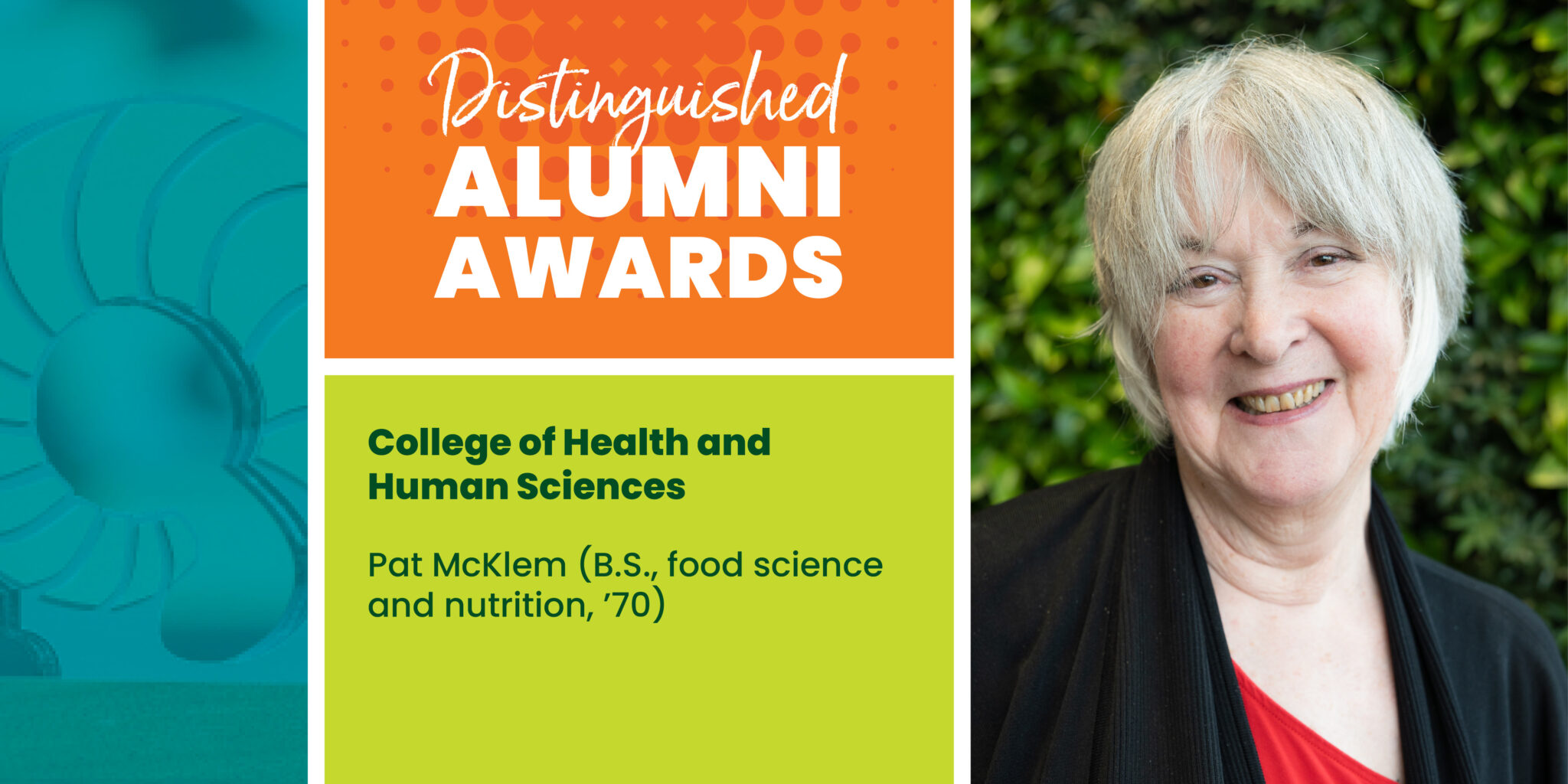
Honoring her career impact as a leading healthcare administrator in the Veterans Affairs system and her engagement as an alumna of the Department of Food Science and Human Nutrition, the Colorado State University Alumni Association named Patricia McKlem (B.S. food science and nutrition, ’70) the College of Health and Human Sciences Honor Alumna for 2023. McKlem was celebrated at the Distinguished Alumni Awards during the university’s Homecoming and Family Weekend festivities on October 12-14.
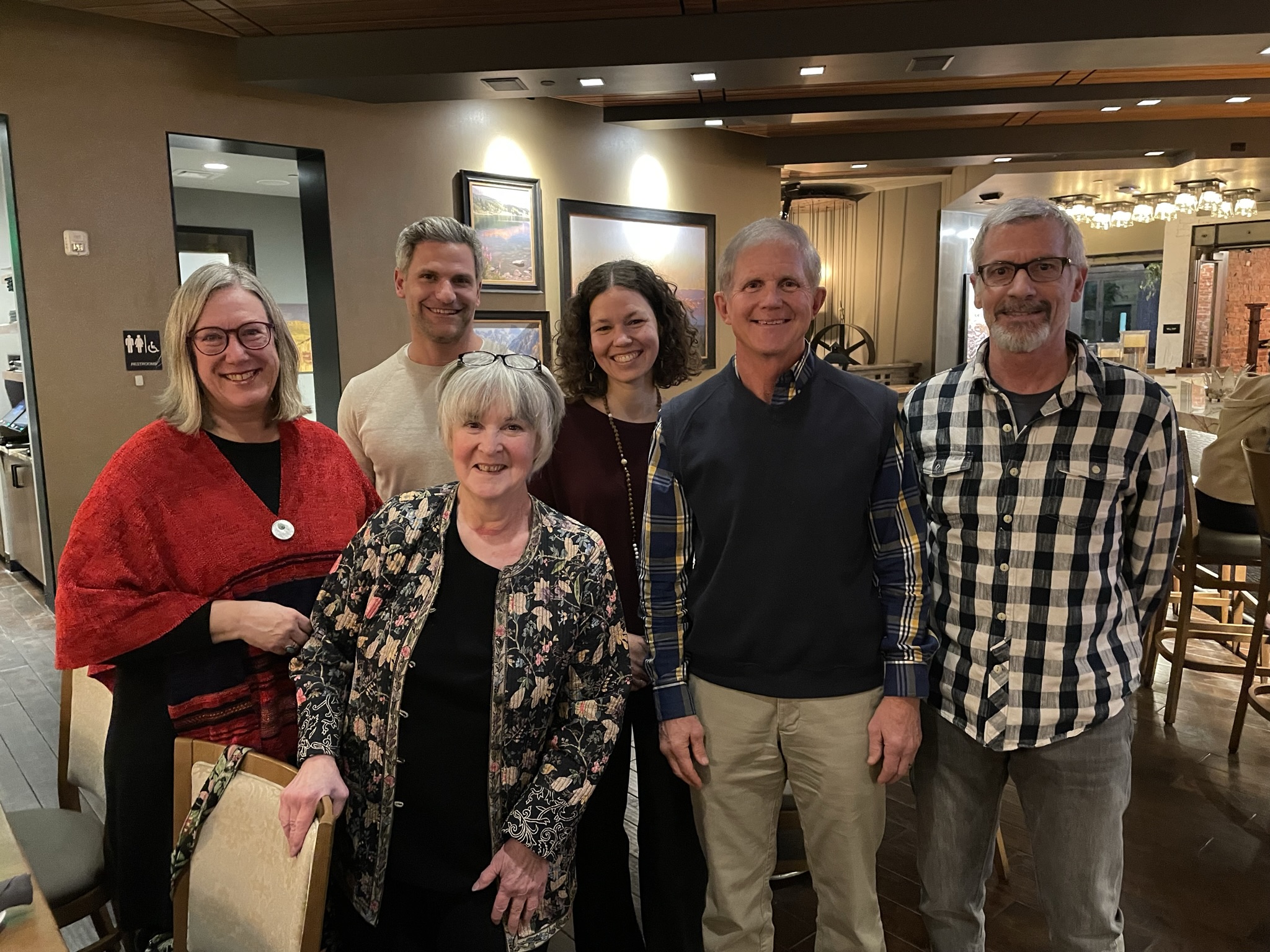
“Pat’s impact as a founding member of our Executive Leadership Council, thoughtful donor, and champion for student and faculty excellence cannot be overstated. She has influenced our college profoundly over the past decade,” said Dean Lise Youngblade. “We are thrilled to recognize her as the CHHS Honor Alumna.”
From her 4-H community roots in Pueblo, Colorado, to leading teams of administrators and clinicians as network director for VA Health Care Systems in Arizona, New Mexico, and West Texas, McKlem counts her CSU degree as a pivotal point in her journey. After a distinguished national healthcare career, McKlem has continued her support and involvement at CSU.
Rural roots, expanding horizons
The oldest of four children, McKlem grew up with three younger brothers on a small farm, while her dad worked for the railroad. From an early age, McKlem learned to work hard and lead. “A family unit is an organization. Everybody has a role, and that’s how it works most effectively,” she asserted. Whether the role was working in fields, showing 4-H animals, canning peaches, or fixing supper, her family taught her that pitching in was more important than the limitations of traditional gender roles. “Whoever could get the job done just did it.”
In McKlem’s rural high school graduating class of 230 students, fewer than 50 went to college. Her involvement with 4-H set her educational trajectory. “Most of my 4-H experience was related to food,” she said. Further, the 4-H ties to CSU elevated her perception of attainable higher education.
“In 4-H, the heart of everything that happens is at CSU,” McKlem said. Through state competitions, she traveled to Fort Collins and stayed in the dorms, where she was a part of talent shows and square dancing. Her familiarity with the campus and 4-H connections made applying to CSU feel like a natural next step.
Picking food as a focus
McKlem showed a fondness for helping with food-related work from an early age. “Mom said when I was little and she was canning peaches, I would come in and take a bite out of every peach in the basket,” she remembered with a sweet (but no longer sticky) smile.
A formative moment for McKlem came in high school when an Air Force dietitian talked to her class about her career and places she’d lived. “I thought, ‘wow, that’s cool!’” This influenced her decision to major in food science and human nutrition at CSU to pursue a career as a dietitian.
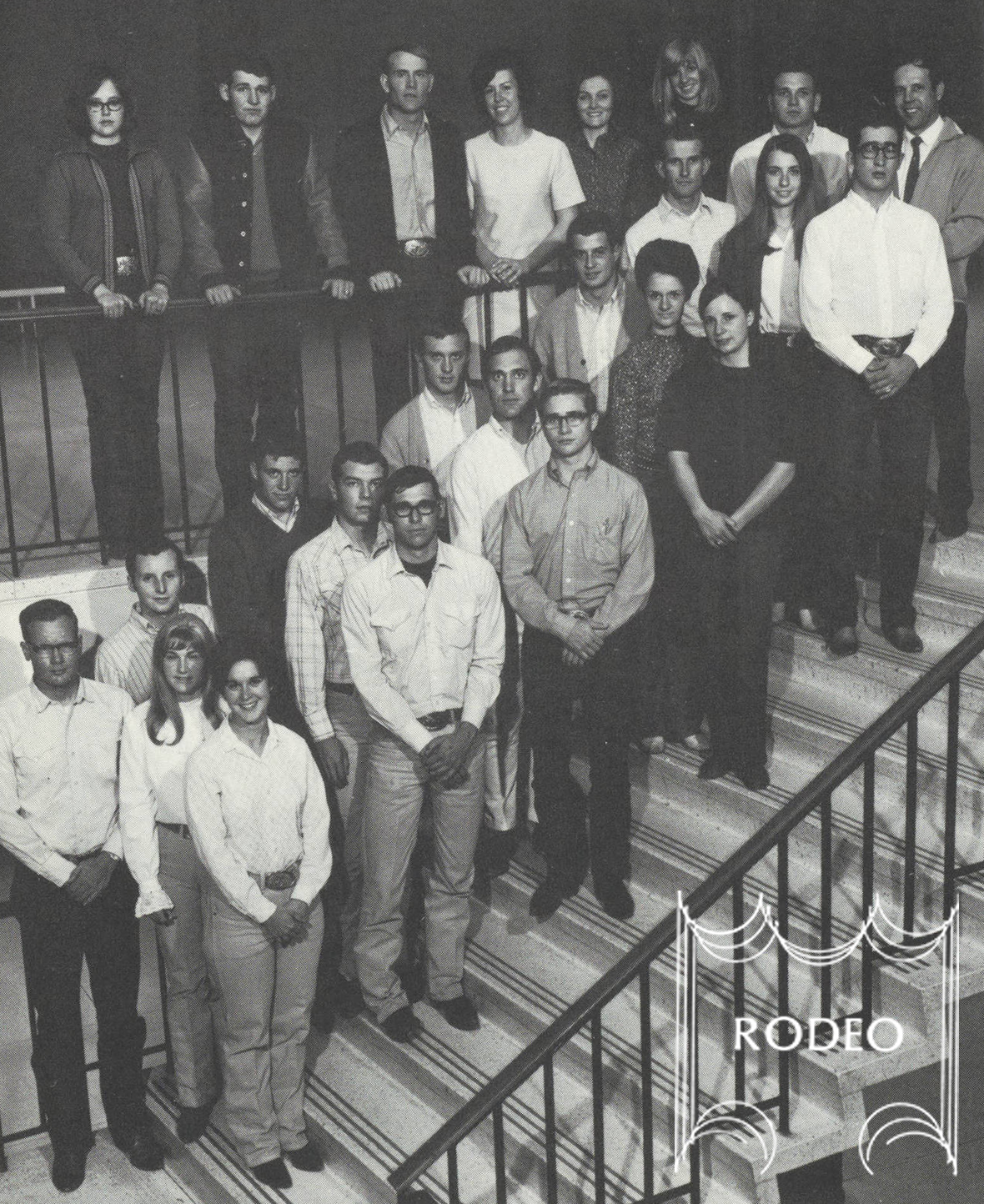
At CSU, she sought out connections that built on her 4-H experiences through campus activities. But McKlem eschewed the traditionally female home ec-related clubs. “I have enough of a rebellious streak in me that I don’t do the expected stuff,” she chuckled. Instead, McKlem found connections who shared her lifestyle and values as a member of the Rodeo Club and the Livestock Club. “That’s where the cowboys were!” she said.
Her summer job at the Colorado State Fair in Pueblo further nurtured these connections. She worked in the entry office to support cattle classes by tracking who won and who got paid. Her family was involved, too. “My brother worked in the feed barn. I’d bring the pickup truck to the fair in the morning; he’d use it all day to feed the livestock; and then we’d use it to go to the rodeo at night.”
‘The coolest class’
McKlem found alignment in her personal passions and professional interests in one memorable CSU class. “The coolest class I had was Meats,” she said. Comprised of animal science majors and nutrition majors, the students first learned about the production of livestock for human consumption by visiting barns and participating in the slaughter of a steer, lamb, pig, and turkey. As a class, they processed the meats and then took the results into the kitchen. “We prepared that same animal and ate together,” she remembered. “The people in animal science taught us things, and we [nutrition students] taught them about things.”
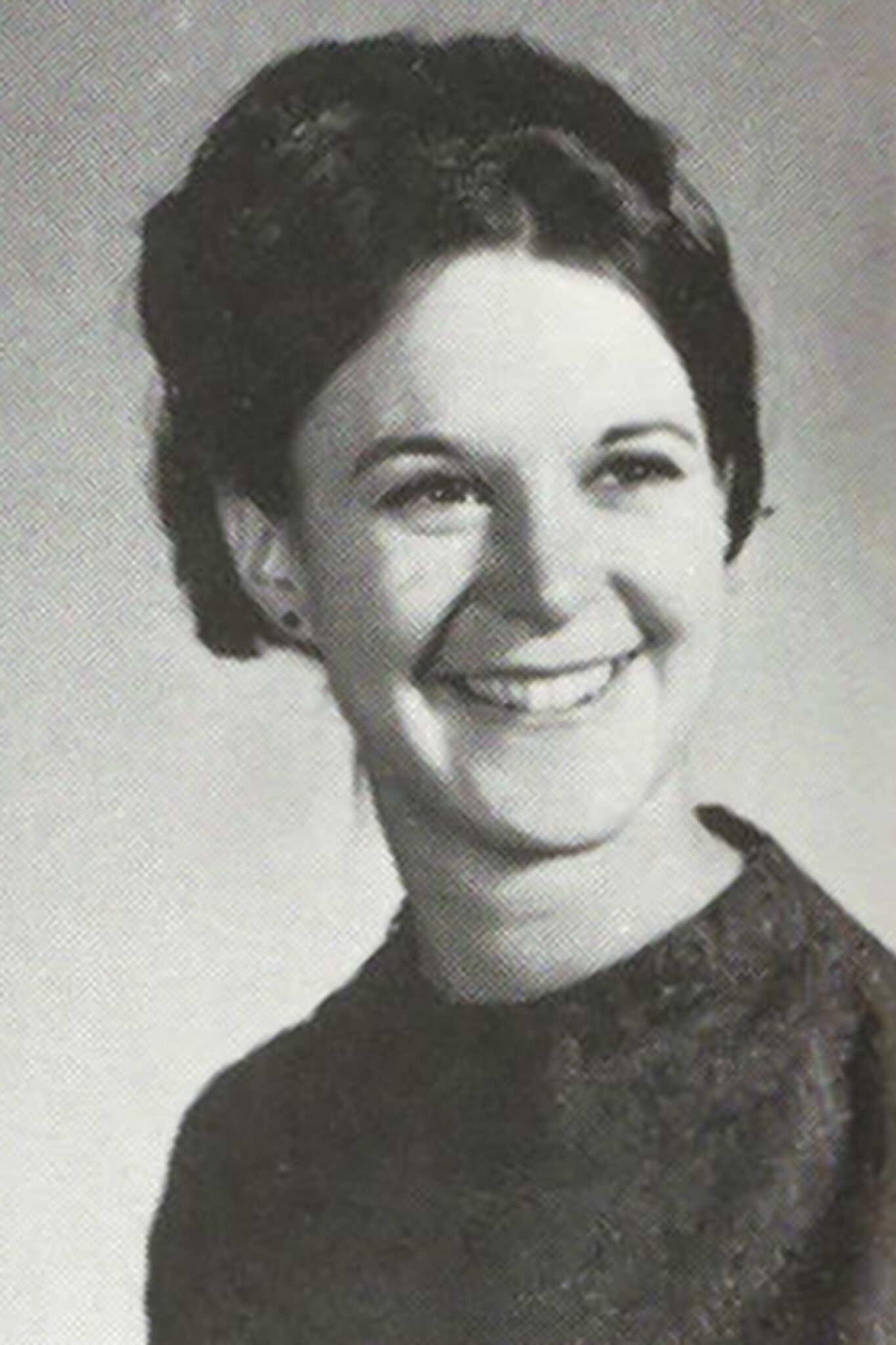
Love of food and her natural work ethic only got McKlem so far in college, though. “The good news was that in high school, I didn’t have to study much. The bad news was that I didn’t know how to study effectively. It was tricky. I did not always do well. It was new, but an important part of life. I learned to persevere.”
Because her major was in the College of Home Economics (now the College of Health and Human Sciences), she was required to complete courses in design, sewing, household equipment, and child development. “As a human being, I think it’s good to be well-rounded,” she noted.
Changing times
“The time I was in college was a turbulent time,” McKlem reflected. She began her freshman orientation in 1966 in general home economics. At the time, stereotypical career goals for college-educated women were nursing and teaching. “Really what they thought was, they’d get married and have kids,” McKlem said of a number of her female peers. Many quit college when they got married. McKlem thought: “Even if I had quit, what I learned at CSU would’ve been helpful. But I didn’t quit. I decided: ‘I’m going to be a dietitian.’”
Along with changing expectations for women came other uprisings on college campuses. The Berkeley protests and the Kent State shooting exemplified the unrest felt by many in McKlem’s generation. “My senior year, I was on break when I heard about Old Main on the news,” she said. The fire that consumed CSU’s first academic building on May 8, 1970, was just days before McKlem’s graduation.
Drafted into jobs
“When I started as a dietitian, I thought maybe by age 50 I’d be head of dietetics,” she recalled, “but I did that when I was 26.” Her mindset changed as her horizon continued to expand. “I grew up thinking that people in leadership roles were somehow stronger, smarter, or had different skills than I had, but over time, I learned that I did have those attributes, and some even better.”
Her rapid ascendance came because she was willing to take a risk. She was recruited to lead a dietetics team in a hospital in Iron Mountain, Michigan. “If you’re adaptable and flexible, more opportunities come your way,” she said.
“At some point, I began to understand that I had the ability and responsibility to do things that will make a difference.”
Diverse and complementary skills
“CSU prepared me for my career by giving me a broad-based education as a foundation, not just in home ec, which came in handy, but also in business skills,” McKlem said. Though these business skills didn’t directly apply to her initial role as a clinical dietitian, they served her well as she advanced into administrative roles. She was noticed by peers and mentors for her foundation of diverse and complementary skills.
Promoted to chief of dietetic services, she had to understand human resources, procurement, and financial management, drawing on her CSU coursework in social work, industrial psychology, and basic accounting. “The job of an administrator is to make things work,” she said. “I knew enough about HR, managing resources, finance, and clinical work to supervise staff and work with other leaders in a hospital.”
McKlem’s career progressed through the U.S. Department of Veterans Affairs health care system, where she served in several hospitals as COO, CEO, and eventually network director. She demonstrated her leadership skills and her working knowledge of the body and clinical applications and doctors in the hospitals she led consulted her as a peer. “They came to me directly so we could clarify what they needed and why, and I could help them put together a proposal or work through bureaucratic issues.”
Leadership evolution
Like the social change McKlem witnessed as a CSU student, the healthcare system evolved during her career. What had been a community of white male leaders began to change.
McKlem cites the influence of the civil rights movement on the formalization of mentoring and coaching programs that elevated leaders from more diverse backgrounds. “We implemented an internally developed High-Performance Development Model,” McKlem recalled. She led a group that developed how the VA trained others to coach and mentor teammates.
“Having a broad base of experience from CSU and life, and knowing how farmers get things done, how companies get things done, how processes happen – all of these things made a difference, affected my credibility, and my ability to get things done in a complex environment,” she said.
McKlem has maintained her membership in the American Dietetic Association, and along the way earned a master’s in public administration from Brigham Young University.
Beyond her own leadership growth, McKlem fostered professional development for others. “One of the most important things we can do as leaders is grow the leaders that will come behind us,” she said. Although she saw administrators who didn’t want others to surpass them, McKlem preferred to invest in people and the organization’s vision for the future. “Even if you’re the best today, new knowledge, abilities, and technology will come along, and someone else will be the best leader tomorrow.”
Individual efforts with large impact
By the time McKlem retired in 2008, she had risen within the VA Health Care System to oversee organizations in Arizona, New Mexico, and West Texas. She earned accolades including the Presidential Rank Award for Meritorious Executive in 2000 and 2004, and the Distinguished Executive Presidential Rank Award in 2002, the highest honor for senior executives in federal service.
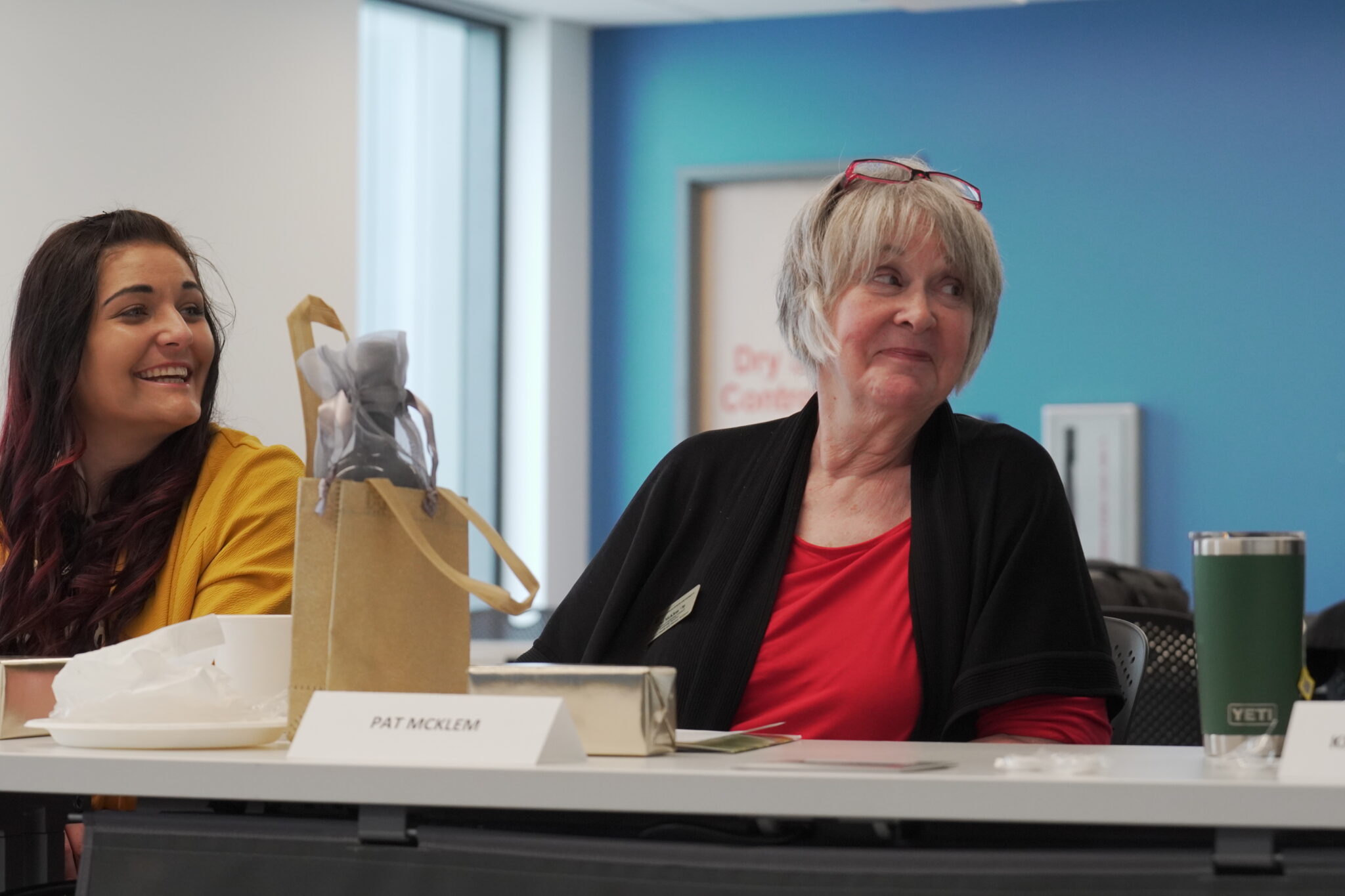
“I never dreamed I’d accomplish all I did,” McKlem reflected. “I’ve been blessed. That gives me the opportunity to do things I wouldn’t have been able to do otherwise. Part of personal mastery is knowing your own skills and how you can fit into your world and maybe make it better.”
Not long after her retirement, McKlem found herself drawn to volunteer service and mentorship. She found an international organization in Phoenix, called Dress for Success, which helped connect people interviewing for jobs with professional clothing and improving job and interviewing skills. “I wasn’t interested in helping people select clothes,” she said, “but I was interested in career coaching.” She seized the moment when women were deciding what to wear for an interview to help them practice presenting themselves. She supported the Women’s Program Director by teaching classes to participants and supporting the Professional Women’s Group with ongoing training, peer support, mentoring, and additional professional clothing. She also participated in implementing and teaching a new program at the Federal Prison helping inmates develop interview and job skills to facilitate their transition to life outside prison.
Thoughtful philanthropy
McKlem also supported her alma mater. Kim Winger, executive director of development for the College of Health and Human Sciences, reached out to McKlem several years ago to thank her for more than 20 years of giving and found an engaged, thoughtful alumna.
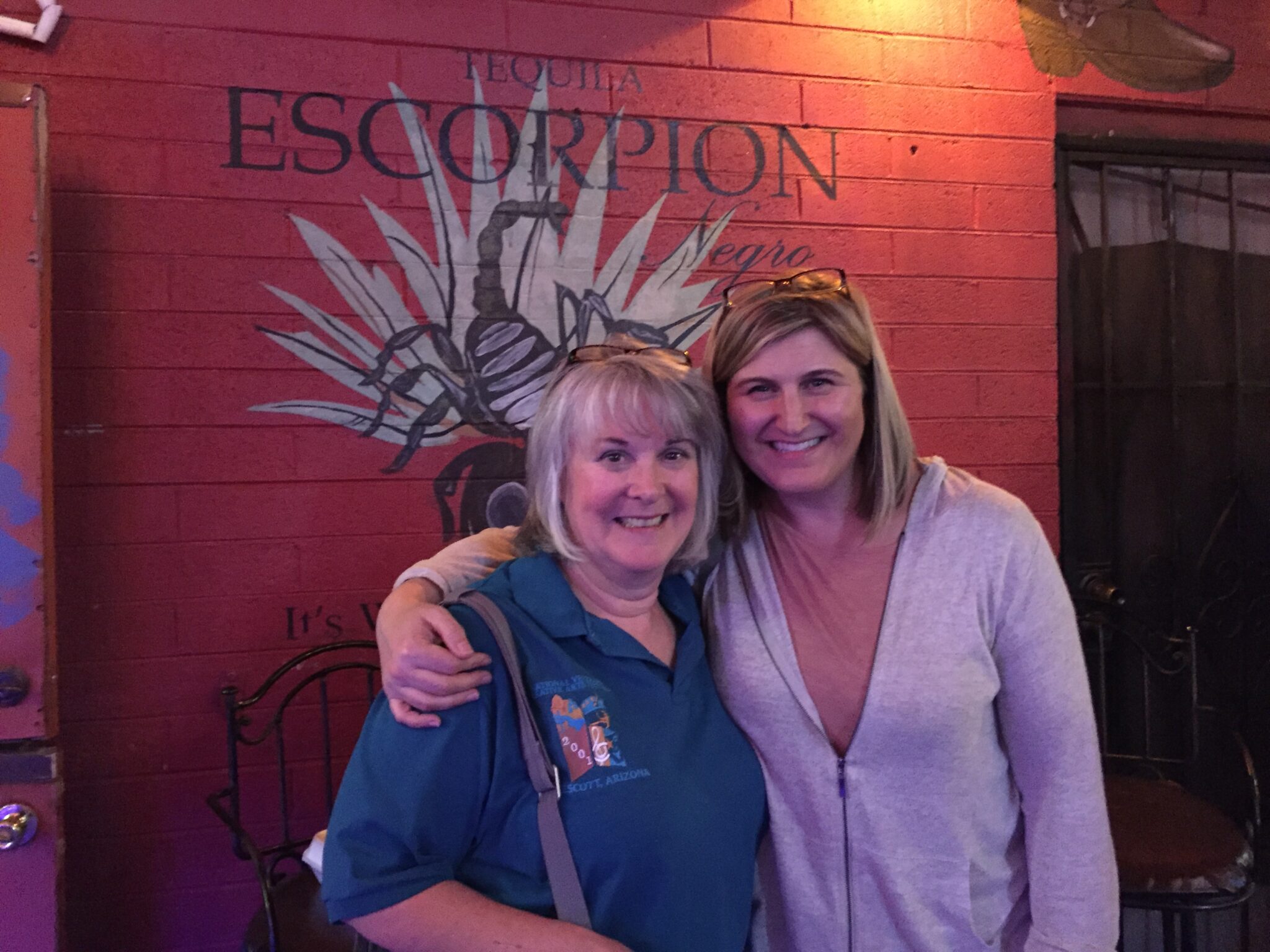
“Pat has been an incredibly loyal donor,” Winger said. “We are so grateful that she brings her compassionate listening skills and future focus to her philanthropy.”
Winger connected McKlem with Chris Melby, who was leading the Department of Food Science and Human Nutrition at the time. “When I first learned of Pat’s vast array of accomplishments as a leader in national health care administration, I couldn’t wait to meet this alum of our nutrition program and discuss with her the skills and traits that led to her impactful career,” he said. “What I discovered was not entirely surprising—as a visionary, she is highly organized, insightful, determined, perseverant, and courageous—all traits that are characteristic of exceptional leaders. But I also discovered that Pat possesses a refreshing humility, kindness, transparency, and authentic genuineness—characteristics that have enabled her to readily connect with her alma mater.”
McKlem asked Melby what he thought future students would need to be prepared for careers. The answers led to an ongoing dialogue and her investment to create the Patricia McKlem Medical Nutrition Therapy Laboratory fund in 2012. The fund supports a teaching and research facility in the Gifford Building that can evolve as technology, equipment, research, and education practices change in the future. Learn about the lab’s impact over its first decade.
“Our department is the beneficiary of Pat’s incredible generosity,” said Melby “But just as important, Pat serves as a mentor and role model for faculty and students, with an unspoken message of how integrity and concern for the well-being of others should permeate our lives inside and outside the university as we strive to make a difference.”
Designing to adapt for future students
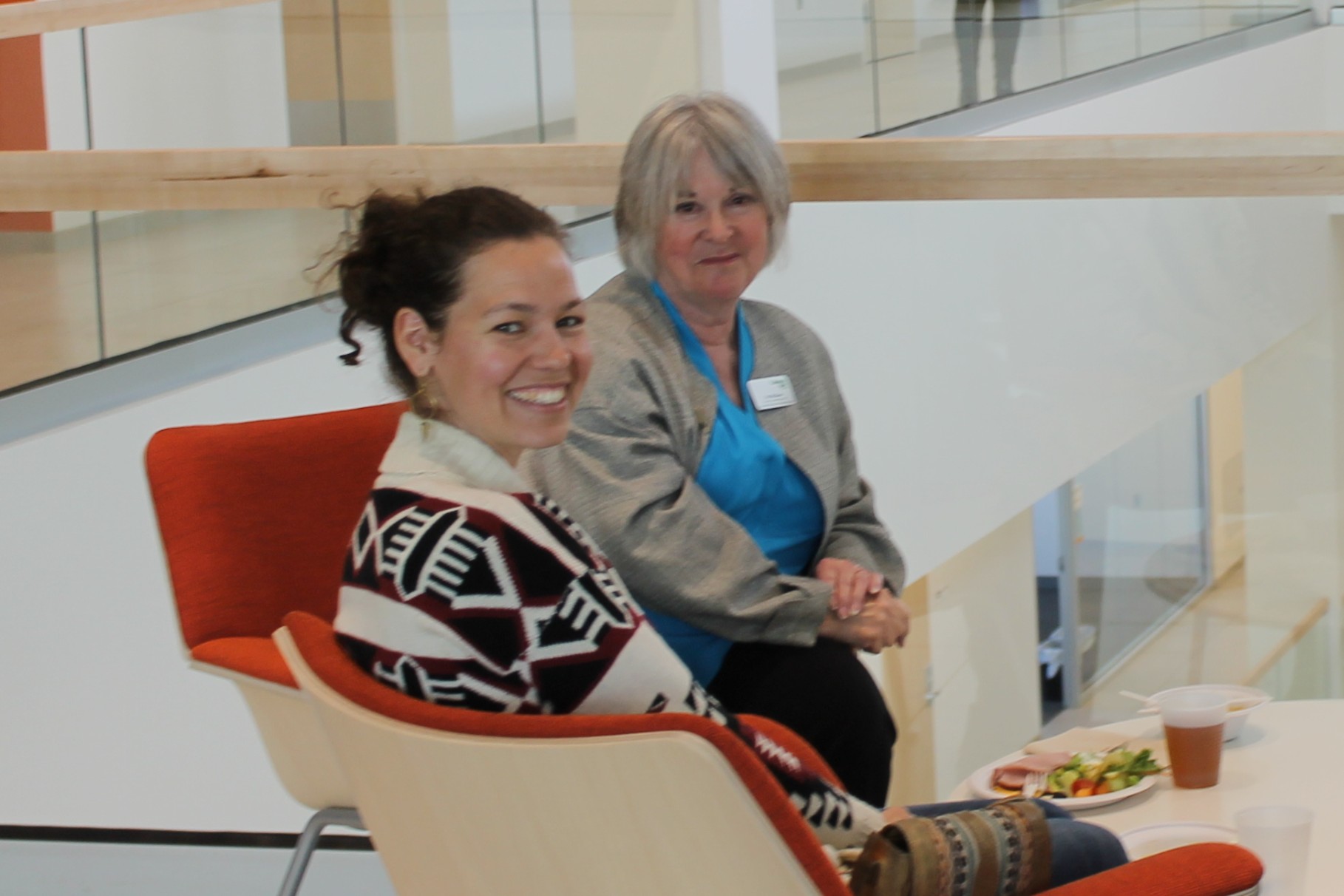
The Patricia McKlem Medical Nutrition Therapy Lab has provided valuable experiential learning opportunities for CSU nutrition students. “Students learn how to support diagnostics and prescriptive nutrition for patients using advanced equipment for measurement of vital signs, resting metabolic rate, body composition, and blood chemistry as well as simulate certain medical procedures that directly impact clinical nutrition,” said Brittney Sly, assistant professor and director of the Patricia McKlem Medical Nutrition Therapy Lab.
The department has continued to consult with McKlem over the years. “I’m thrilled that CSU continues to involve me in the discussions about what’s going on,” she said. “Past and present department heads Chris Melby, Mike Pagliassotti, and Chris Gentile, keep me posted so I can stay informed in a meaningful way.”
Executive guidance
“When we were bringing together alumni and industry partners for the CHHS Executive Leadership Council, she was among the first to volunteer,” Winger recalled. “We have benefitted from her perspective ever since.” Over the past decade, Pat has joined the council’s twice-a-year meetings to advise the Dean and forge connections to support the college mission.
“I am incredibly grateful for Pat’s perspective as a successful leader in the healthcare field,” said Youngblade. “Her unique understanding of systems, partnerships, and funding streams, combined with her compassionate, human-centered decision-making, have made her a vital asset to the College. On a personal note, I want to thank Pat for her invaluable counsel and supportive mentorship over the years. Our college has Pat’s direct and indirect fingerprints on much of what we’ve accomplished, and I am so very grateful for her friendship and collaboration. She is indeed in all respects a CHHS Honor Alum.”
Melby applauded McKlem’s impact: “Pat is clearly a ‘difference maker’ and we are incredibly grateful that she has given so much of herself to our department!”
“I’ve come to understand that you become a part of everyone you meet, and they become a part of you,” McKlem said. “I really believe that. You can always learn new things, apply what you know in new ways based on the need at the time. If you’re adaptable, flexible, and go with the flow, more opportunities come your way.”
The Department of Food Science and Human Nutrition is part of CSU’s College of Health and Human Sciences